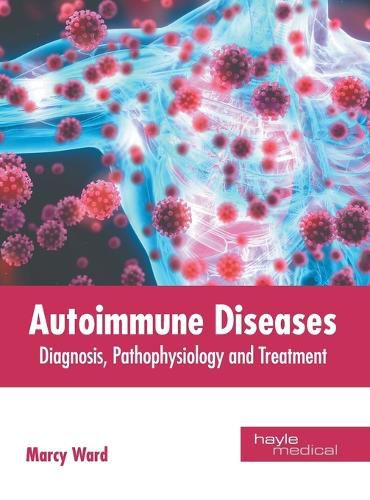Readings Newsletter
Become a Readings Member to make your shopping experience even easier.
Sign in or sign up for free!
You’re not far away from qualifying for FREE standard shipping within Australia
You’ve qualified for FREE standard shipping within Australia
The cart is loading…






An autoimmune disease refers to a type of medical condition caused by an abnormal immune response to a healthy body part. The most common types of autoimmune diseases include rheumatoid arthritis (RA), multiple sclerosis, celiac disease, type 1 diabetes, systemic lupus erythematosus (SLE), myasthenia gravis, and inflammatory bowel disease. Majority of the autoimmune diseases share similar signs and symptoms, such as sore muscles, low-grade fever, skin rashes and exhaustion. There are many risk factors associated with autoimmune diseases, such as family history, obesity, smoking and exposure to pollutants. Autoimmune diseases can be diagnosed by performing some blood tests, such as the erythrocyte sedimentation rate (ESR), antinuclear antibody test (ANA) and complete blood count (CBC). Treatment of these diseases is determined by the nature and severity of the condition. Immunosuppressants and nonsteroidal anti-inflammatory medications (NSAIDs) are frequently utilized for the treatment of autoimmune diseases. This book elucidates the innovative models around prospective developments with respect to autoimmune diseases. It is compiled in such a manner, that it will provide in-depth knowledge about the diagnosis, pathophysiology and treatment of these diseases. This book will prove to be immensely beneficial to students and researchers studying these diseases.
$9.00 standard shipping within Australia
FREE standard shipping within Australia for orders over $100.00
Express & International shipping calculated at checkout
An autoimmune disease refers to a type of medical condition caused by an abnormal immune response to a healthy body part. The most common types of autoimmune diseases include rheumatoid arthritis (RA), multiple sclerosis, celiac disease, type 1 diabetes, systemic lupus erythematosus (SLE), myasthenia gravis, and inflammatory bowel disease. Majority of the autoimmune diseases share similar signs and symptoms, such as sore muscles, low-grade fever, skin rashes and exhaustion. There are many risk factors associated with autoimmune diseases, such as family history, obesity, smoking and exposure to pollutants. Autoimmune diseases can be diagnosed by performing some blood tests, such as the erythrocyte sedimentation rate (ESR), antinuclear antibody test (ANA) and complete blood count (CBC). Treatment of these diseases is determined by the nature and severity of the condition. Immunosuppressants and nonsteroidal anti-inflammatory medications (NSAIDs) are frequently utilized for the treatment of autoimmune diseases. This book elucidates the innovative models around prospective developments with respect to autoimmune diseases. It is compiled in such a manner, that it will provide in-depth knowledge about the diagnosis, pathophysiology and treatment of these diseases. This book will prove to be immensely beneficial to students and researchers studying these diseases.